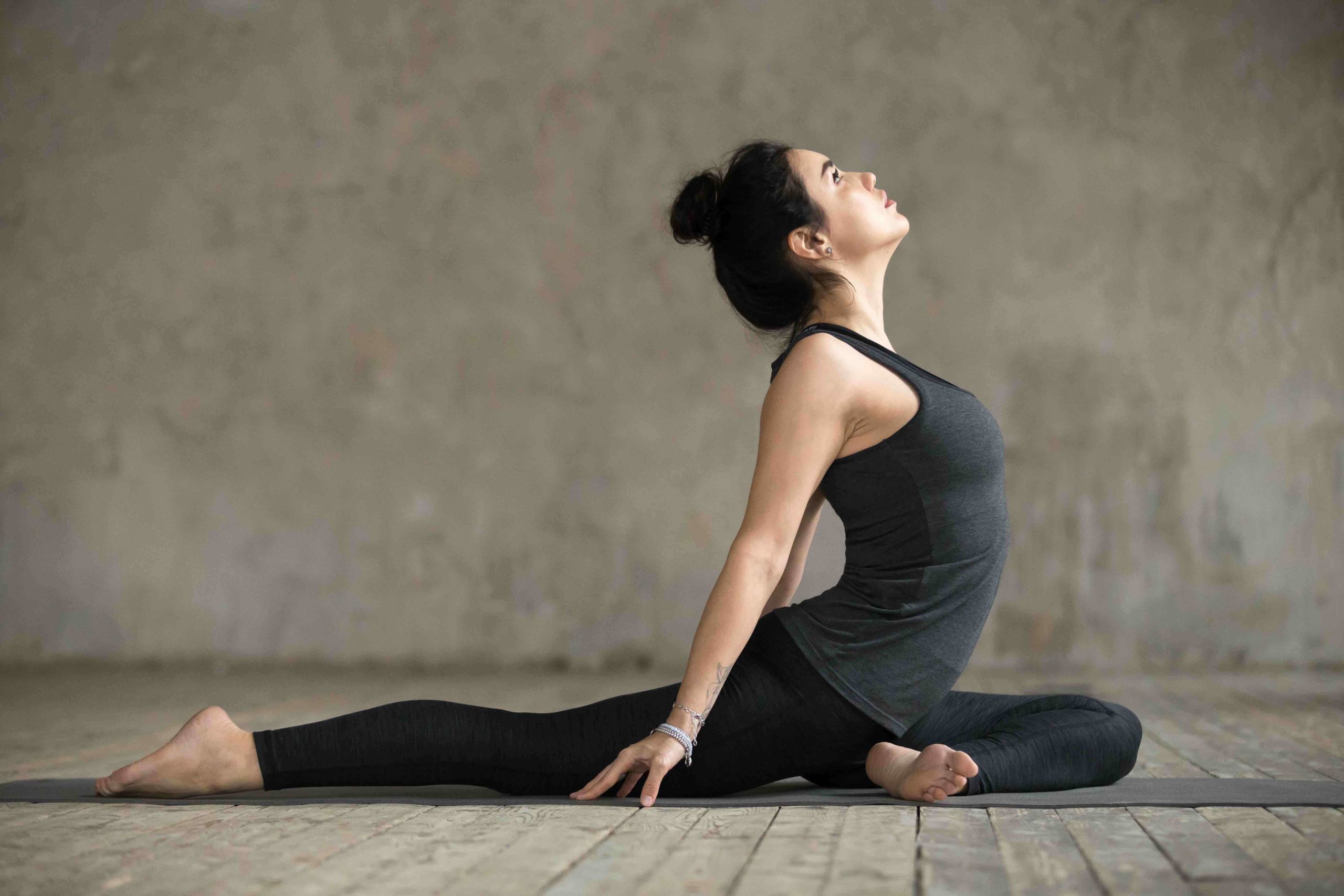Our everyday lives have never been busier and it’s easy to forget to prioritize mindfulness. If you’re feeling burnt out at the end of a hectic week, then yoga for mindfulness may be the perfect addition to your fitness routine.
What type of yoga is best for mindfulness
All yoga practice encourages mindfulness by bringing attention to your breath and body.
A slower practice like Hatha yoga or Kundalini yoga often involves meditation and chanting during the class, ideal for tapping into your inner calm. Vinyasa yoga is also good for practicing mindfulness due to the focus on your breathing as you move through different poses.
If you feel more relaxed after working up a sweat, a faster moving practice such as Power yoga could be a better option for you. Ashtanga yoga, which combines physical and spiritual practice, also promotes mindful thinking.
Try out different types of yoga classes to find out what works best for you. Remember to take a water bottle with you to keep hydrated.

The benefits of yoga for mindfulness
Practicing yoga and mindfulness can help you feel more fulfilled and less stressed. These are the top benefits of using yoga to increase your mindfulness:
- Reduced stress
- An improved mood
- Increased self esteem
- It encourages self care
- A calmer mind
Reduced stress
Taking time to refocus the breath and mind can help you reduce tension and stress in your body. Breathing exercises can be helpful to disrupt negative thinking outside of the studio as well.
Better mood
You’ll likely feel calmer and more relaxed after a yoga and meditation session due to the increased endorphins your body releases during the practice. It also encourages you to feel gratitude and a deeper sense of connection with your body and self.
Improved self-esteem
Challenging yourself to hold a new yoga pose or practicing positive self-reflection is a great way to feel accomplished and confident. Yoga and mindfulness takes practice, spending time improving yourself deserves to be celebrated.
Encourages self-care
If you’re struggling to think of the last time you prioritized yourself, you may benefit from some self-care. Yoga gives you the chance to take a break from your busy day and pay attention to how your body feels. It helps you get a great workout while focusing on you and your needs first.
Calmer mind
Yoga encourages you to be in the present moment and better understand your feelings and thought processes. When you have a calm mind it’s easier to make better decisions and avoid spiraling negative thoughts.
Other benefits of yoga practice
Beyond the wonders of improved mood and self-esteem, yoga has many other benefits. It can also improve your body composition, sleep and even your social circle!
Better sleep
Yoga can help you unwind and switch off after a long day, so you’re less likely to find yourself absentmindedly scrolling through Instagram in bed instead of resting.
Increased strength
If bicep curls don’t bring you joy, you can increase your body strength with yoga. As you move through a series of body weight poses your muscles will be challenged to make you stronger. Ashtanga yoga and Power yoga classes are especially tailored to building muscle strength.
Improved flexibility and posture
Not only can yoga give you a stronger core, it can also improve your flexibility and posture, perfect for those of us that spend most of our day at a desk. You’re also less likely to injure yourself or suffer from back pain.
Decreased bloating
One of the lesser known benefits of yoga is it can help improve digestion and reduce bloating. If you’re feeling uncomfortable after indulging in a special meal, yoga stretches could help your body relax.
Make new yogi besties
The yogi community is very friendly and supportive, making yoga classes an excellent place to meet new people. Having a yoga accountability partner can also help motivate you to continue on your fitness and mindfulness journey.
How often should you do yoga in order to increase your mindfulness
If you’re new to yoga and mindfulness you could try to include one gentler yoga practice a week. Alternatively try to incorporate light stretches and breathing exercises into your bedtime routine to unwind before you sleep.
If you’re keen to make mindfulness a priority, then two to three yoga sessions per week will help you achieve this quicker.
Be kind to yourself if you don’t feel better or see improvement straight away – stick with it! Like most things, consistency is key.
Check out these yoga for mindfulness studios near you
If you’re ready to improve your mindfulness through yoga, explore different types of yoga for mindfulness classes near you.
1 Comment
-
The main point with mindful yoga is to be curious and open to what you are noticing—without judgment or attachment—investigating your bodily sensations as fully as possible, and then intentionally releasing the focus of attention before shifting to the next area to explore (Smookler, 2016). Remember to be curious; when the mind wanders, notice any irritation or judgment, and then bring your mind back to the breath and the body. More about mindfulness you will read here – net-boss.org/mindfulness-by-julia-hanner







